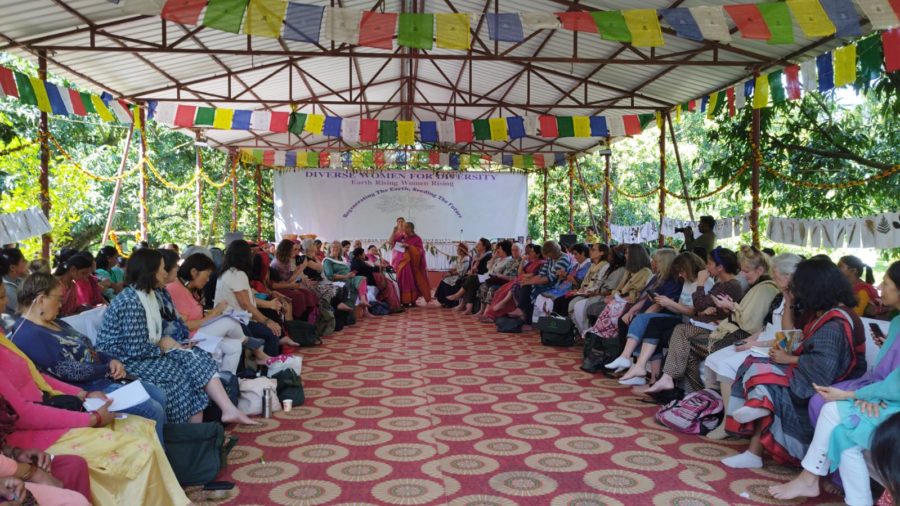
From the 2nd to the 8th of March, Navdanya Biodiversity Conservation Farm hosted the international gathering of the Diverse Women for Diversity Movement (DWD).
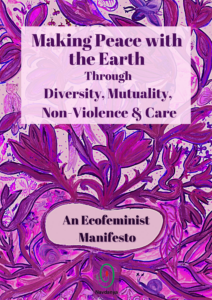 Women coming from a diversity of countries and regions worked together on a Manifesto on Making Peace with the Earth, for the Regeneration of Nature, Culture and Society.
Women coming from a diversity of countries and regions worked together on a Manifesto on Making Peace with the Earth, for the Regeneration of Nature, Culture and Society.
The Manifesto is set to be launched in Rome in June 2023 to spread a collective vision of urgently necessary ecological, cultural, social and economic regeneration, stemming from women’s revolutionary and creative power.
The international gathering paved the way for long-term commitment and alliances to strengthen cooperation and create new synergies among movements, women farmers, activists and researchers working for agroecological, just and diverse food communities all over the world.
Challenging the attack on food cultures and food sovereignty: the voices of diversity against uniformity
For thousands of years rural communities, farmers and indigenous people have protected, nurtured and sustained the biodiversity and quality of food, crops and medicinal plants by learning from and co-evolving with Nature. In less than a century, industrial, corporate-driven, globalised agriculture has replaced this ancient, local and ecological knowledge with a universal logic of domination of men over nature, of men over all living species, of men over women.
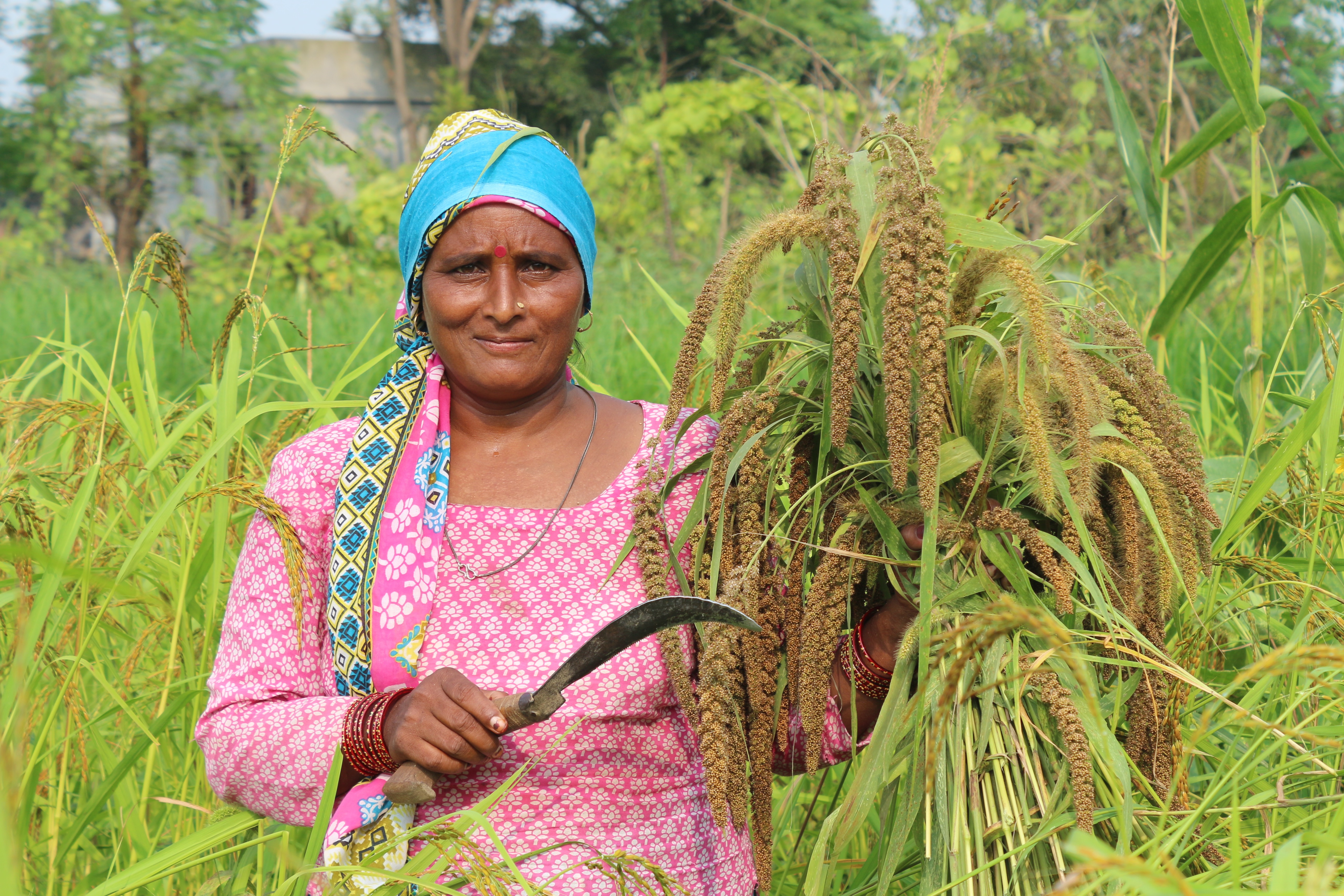
Food has become a standardised commodity, losing its cultural and biological diversity, its precious nourishment, its connection to the soil, water, organic matter, and to the hands that produce it.
Diverse, local food and agricultural systems have been reshaped to satisfy the hazardous logic of extractivism, productivism and profits. Within the dominant paradigm of the industrial food system, quantity wins over quality, productivity over health, homogeneity over diversity, chemical inputs over nature’s own capacity to adapt and defend herself from changes, pathogens and stress.
Not only has this caused irreparable ecological damage, but has also robbed women and small producers of their livelihood, reduced access to land and denied consumers the right to sufficient, safe and healthy food.
On the other hand, thousands of small-holders, farmers and peasant communities are still keeping organic and ecological food systems alive, resisting the take over of their land, seed, food and water from intensive and chemical agriculture.
Worldwide, women hold a fundamental role in this struggle. Most knowledge related to biodiversity, regenerative farming, nutrition and health is held by women. Food security is directly linked to women’s approach to agriculture and food, based on care, ecological thinking and complexity.
However, women’s knowledge and contributions to the food and agriculture economy have been reduced and made invisible by centuries of capitalist patriarchy, with the imposition of industrial food systems and the separation of human communities from nature.
As we are witnessing severe interrelated crises in our societies, at the ecological, social and economic level, the voices and practices of those who are guarding, regenerating and protecting food, biodiversity and the living communities of the Earth stand together as the voices of diversity against the uniformity and violence that is driving humanity into ecological collapse.
Restoring biological and cultural diversity through nature and women’s work
The latest IPCC report shows an outstandingly critical scenario of the escalating climate and ecological crisis: “Global surface temperatures will continue to increase until at least the mid-century under all emissions scenarios considered, risks in physical water availability and water related hazards will continue to increase by the mid to long-term in all assessed region and climate change will cause loss and degradation of most of the world’s forests, coral reefs and low lying coastal wetlands.”
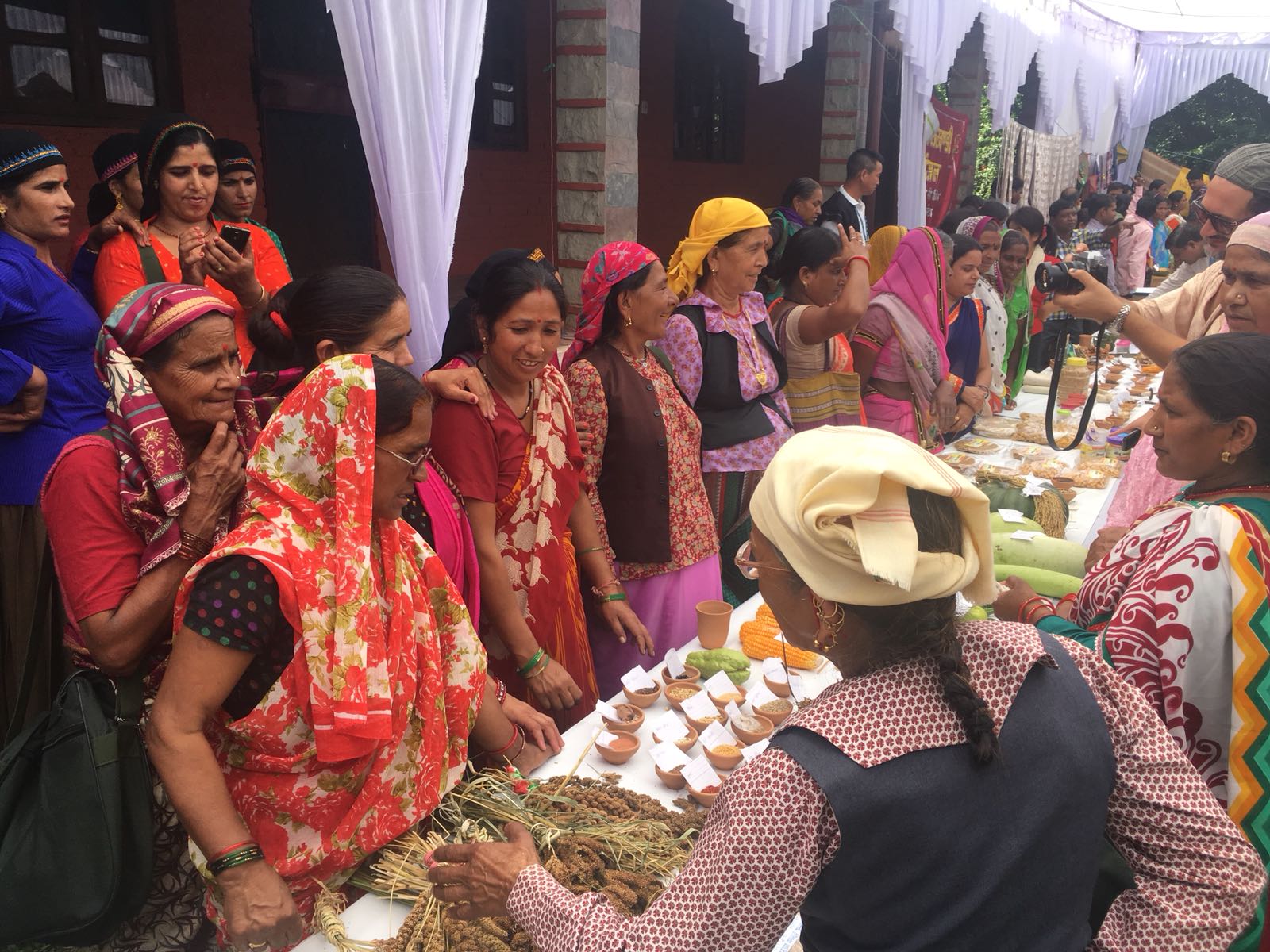
The most worrying projections are those related to biodiversity loss: the report highlights that at global warming levels of +1.5°C, 3-18% of the species in terrestrial ecosystems will face very high risk of extinction, while the percentage rises to 3-29% of the species at warming levels +2°C, and 3-48% at +5°C.
In ocean and coastal ecosystems, the risk of biodiversity loss ranges between moderate and very high by +1.5°C global warming level, increasing to high and very high across most ocean and coastal ecosystems by +3°C.
Biodiversity is nature’s most powerful weapon to cope with changes, risks and damage. Biodiversity is key for ecosystems’ resilience and their capacity to heal. As biological diversity is one of the pillars of ecological health, diversity in our cultures, food, economies, world-views, lifestyles is one of the pillars for a resilient and ecological society.
Diversity has always been the pattern of women’s work, of women’s planting and sowing of food crops, of women’s food processing. Diversity is part of women’s knowledge systems and economic systems.
Centuries of oppression and attempts at domesticating women’s creative energy and power have made their role invisible, as well as their deep understanding of the laws of ecology.
DWD: A united stand against violence & ecological collapse
In 1997, the Diverse Women for Diversity network (DWD) was created, bringing together women of diverse cultures, race, religion and socio-economic conditions for a common goal: standing united against the erosion of biodiversity, against the poisoning of our bodies, soil, food, water and air, against the takeover of food sovereignty and community decision-making.

Diverse Women for Diversity at the WTO protest in Seattle 1999 – Jean Grossholtz>/small>
Back in 1999 at the WTO Seattle meeting, DWD issued a joint declaration, stating: “We women, in all our vibrant and fabulous diversity, have witnessed the increasing aggression against the human spirit, human mind and human body and the continued invasion of an assault upon the Earth and all her diverse species. And we are enraged. We demand of governments, international organisations, transnational corporations and individual men who share our rage, that they address the crisis that has been caused by the creation of monocultures and the reduction, enclosure, and extinction of biological and cultural diversity”.
After more than twenty years, we are still witnessing the same aggression against human communities and the Earth. As we face the rapid escalation of climate change and ecological disruption, governments, national and multinational corporations, international panels and summits are still providing fake solutions. Agribusiness corporations are still pushing unregulated economic growth with the same old logic of exploitation and reductionism, pushing for lab-made synthetic food, gene editing and new GMOs as solutions to the ecological crisis.
Global alliances for global challenges: joining hands for ecological regeneration
This year, from 1st to 8th of March the DWD network gathered at the Navdanya Biodiversity Conservation Farm to join hands and build trans-local alliances among women researchers, farmers and activists who are struggling worldwide to regenerate communities, food and agriculture.
Women from countries as diverse as Japan, Egypt, Costa Rica, Nicaragua, Canada, South Africa, Finland, Italy, France, Mexico, Germany, Brasil, United States, the Philippines and India amongst others, met to defend cultural and biological diversity, share experiences and knowledge, and work jointly on a Manifesto on Earth Democracy, for the Regeneration of the Earth through economies of care and agroecology.
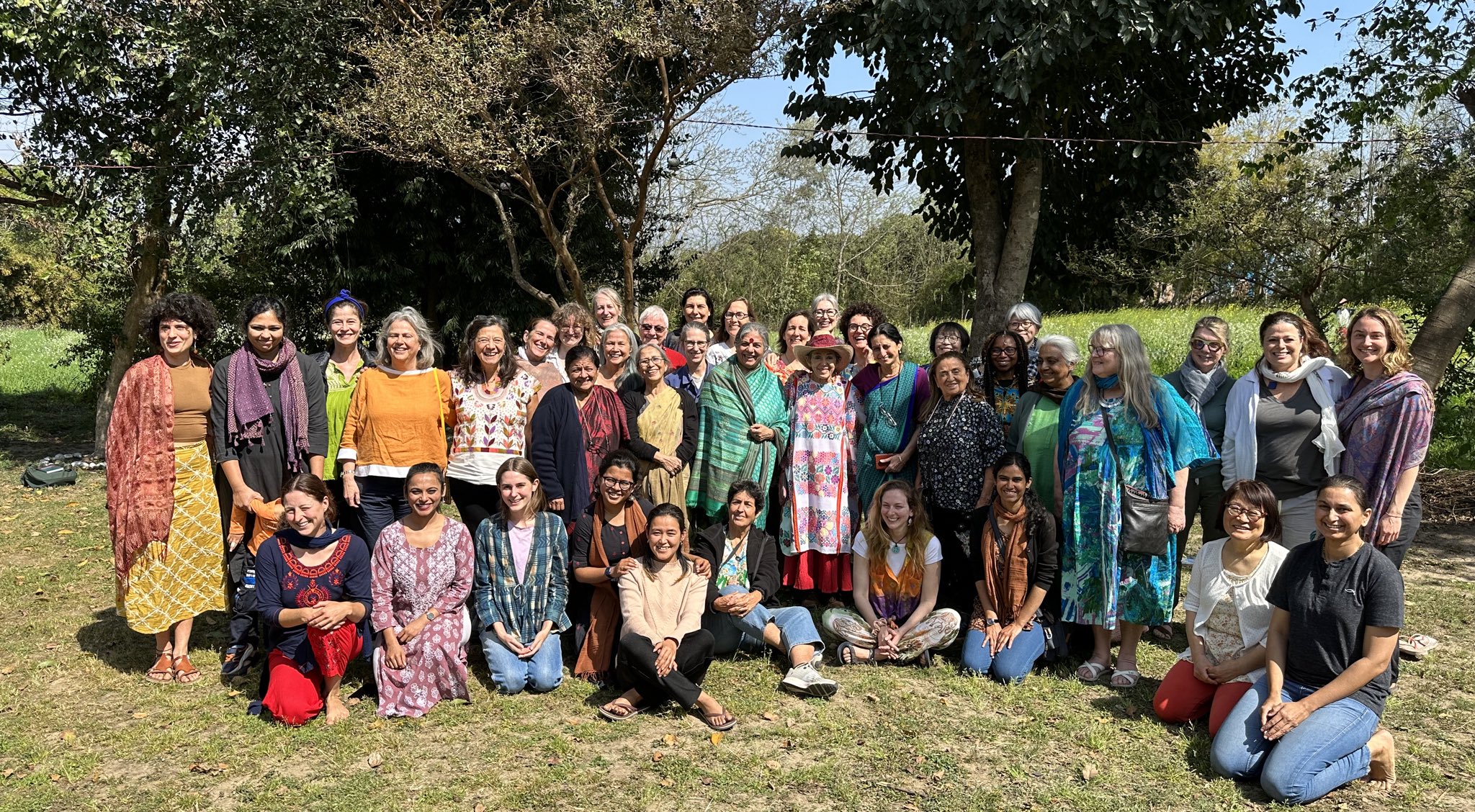
More than 150 women spent time together, discussing, writing, sharing, cooking, eating, dancing and celebrating nature. Women seed savers from more than twenty states of India shared their stories, songs on agriculture and seeds with women seed savers and farmers coming from all continents.
One week of international gathering, hosting assemblies, working groups as well as celebration and collective activities, has been a prior step to cement joint international mobilisation and global alliance among women, to strengthen local movements worldwide and support each other’s fights and campaigns.
During the plenary session of the international DWD festival, Nadia El Hage Scialabba, food ecologist who worked for many years at FAO and currently senior fellow at the Swette Center for sustainable food systems, stated “We talked about the renewed attack that we see today, we were talking about GMOs and now we have gene editing, we were talking about biopiracy and now we have digitalisation that is taking away the knowledge from people, we have synthetic food which is taking away all the culture from different population, mechanisation which is replacing labour and increasing the separation of humans from nature. All these different forms are controlled by capitalism and financialisation of every life form and we have the duty together to join hands, and to resist peacefully, and this can be done by communities like us.”
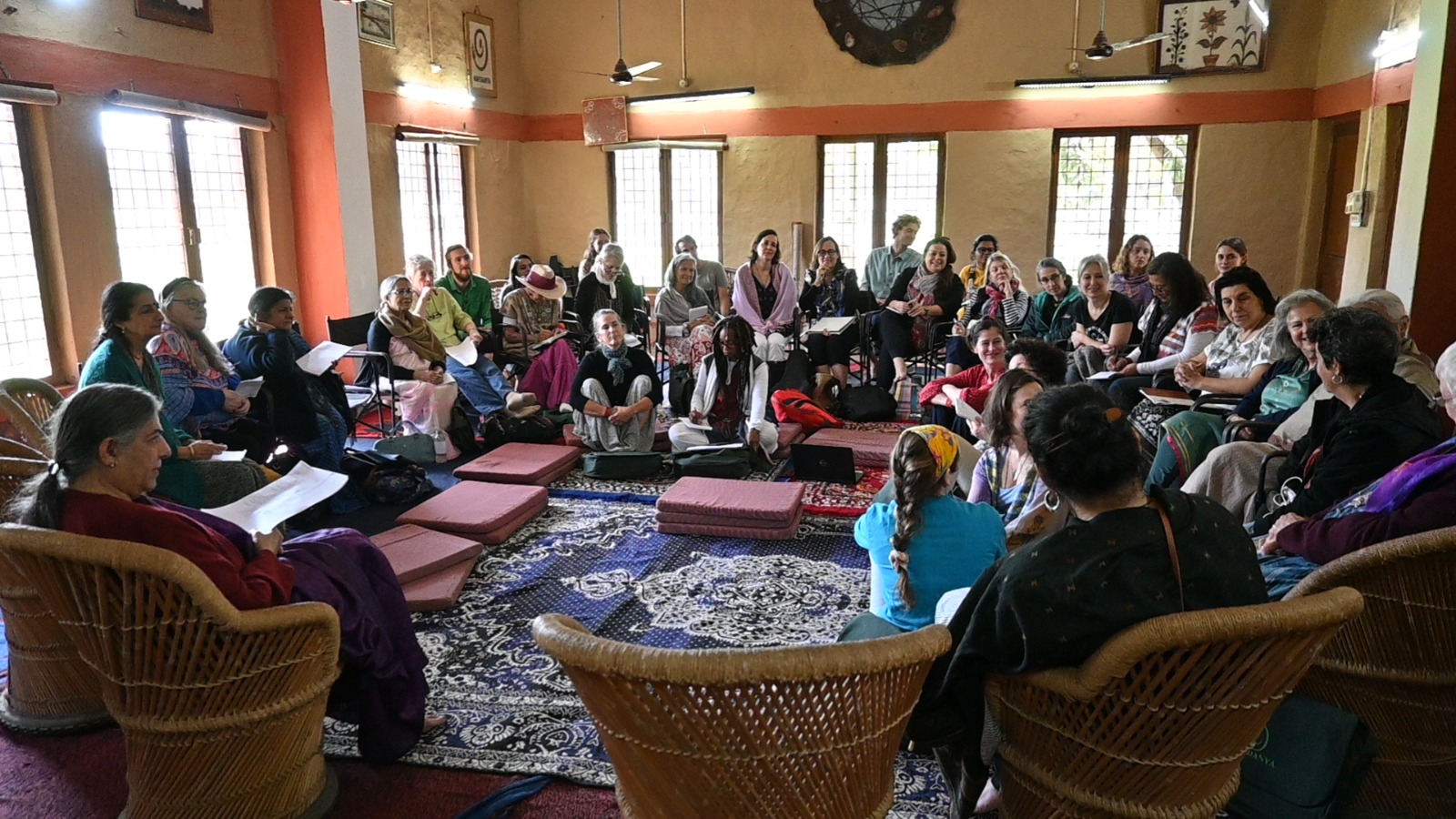
Meeting and sharing are indeed fundamental to make the invisible visible: no matter where we live and fight our struggles or grow our food, the challenges facing humanity today are global. Climate change is affecting human communities all over the globe, farmers are facing increasing difficulties in every country, communities are being disrupted and ecosystems destabilised at every latitude.
This is why trans-local, international alliances are of utmost importance today.
This is why Diverse Women for Diversity is one of the solutions to isolation of women farmers, seed savers and women movements worldwide as well as the solution to regenerate biodiversity, food, health and human economies.
Member of the European parliament Marie Toussaint, working in the Committee on Industry, Research and Energy and the Intergroup on Climate Change, Biodiversity and Sustainable Development among many others, during the international DWD festival stated, “the way people use the term economy today is a lie, because they are talking about grabbing, commodifying, trading and destroying the earth, but also destroying the way we behave with each other. It’s the greed economy, but this is not real economy. Economy in the dictionary means oikos, our house. Our house is the earth, our house is also humanity, our house is also our families, the people and places we are living in. So the economy is about the way we care for each other. The laws of economy cannot be above the laws of nature. We need to set some planetary boundaries, but not to cut and trade, but to cut and share among us, and this is the way we want the economy to go.”
The future of food and the future of life on earth, as well as the solutions to the ecological collapse cannot be found in the logic and hands of those who caused it in the first place. Solutions are in the hands of women, agroecological farmers, social movements and networks that are resisting the disruption of nature and society.
During the plenary session of the international DWD festival, Caterina Batello, agroecology expert, Board Member of Agroecology Europe (AEEU) and Agroecology Italy (AIDA) and former team leader of Agroecology and Ecosystem Management at FAO, stated: “Working and struggling for agroecology I learned three things: the first one is about the role of women. All over the world there are women who work in agriculture, women who do every kind of work to survive, and they care for the food, they care for their children, they care for their family, they care for their land. Women make peace, and I would like to celebrate the capacity of women to make peace. The second is about the soil. Our earth today is disrupted. One third of all our soils are degraded. We have to fight to bring back the fertility of our soils. Without this there will be no food. The food comes from the life that is in the soil. We don’t see it but it exists. In one little spoon of soil, there are over ten thousand little microorganisms, forms of life. The soils are alive. We must fight to maintain and restore the life of our soils. The third is the small holders, the pastoralists and fishermen who are the real custodians of the world. In the world, one third of all population, over 2 billion people are fishermen, pastoralists and small holders. We forget we have incredible power, but if we stick together like we are doing here right now, we can restore a world in which we believe.”
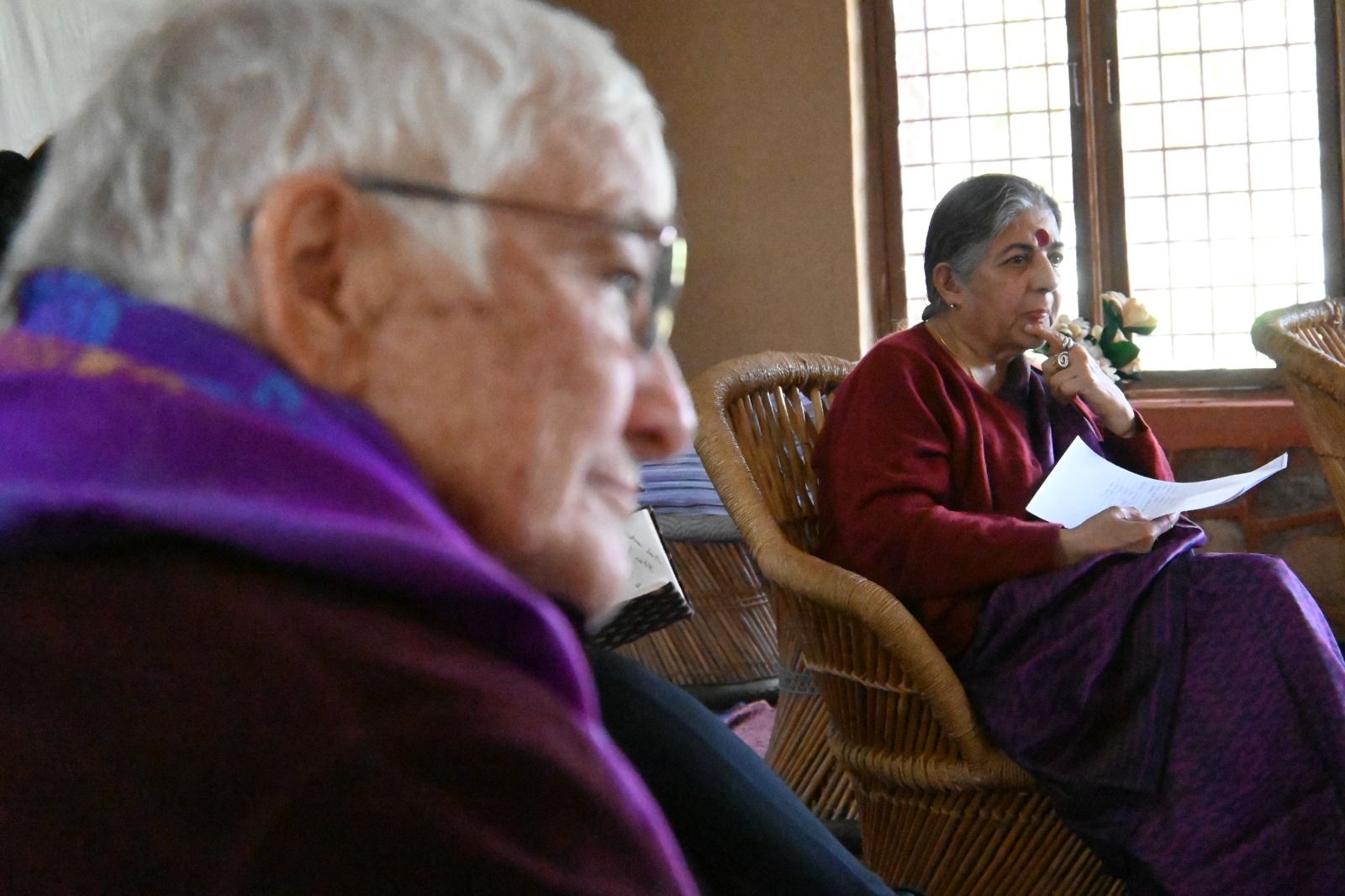
The International Diverse Women for Diversity network is one of the examples that must flourish to pave the way for the world we believe in, through advocacy, action and pressure on governments and civil society for urgent social and ecological transition.
As stated by Dr. Vanana Shiva, “This is Diverse Women for Diversity, from the grassroots: we stand for cultural diversity, we stand for biological diversity, we stand for diverse food systems. We stand against the monoculture of the mind, we stand against militarisation of the mind, we stand against the new surveillance system. We stand for freedom of people, freedom of the Earth, freedom of every living species”.
Also read:
DWD Festival: Celebrating Diverse Women for Diversity at Navdanya Farm (2 – 8 March 2023)
Open Letter from Diverse Women for Diversity to world leaders (March 8th)
Dr. Vandana Shiva’s article (March 8th) Holi: the colours of biodiversity
Press Release (March 8th): Happy International Women’s Day and Happy Holi
Press Release (March 4th): Diverse Women for Diversity United for a Diverse Future
